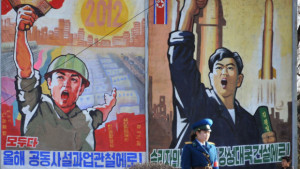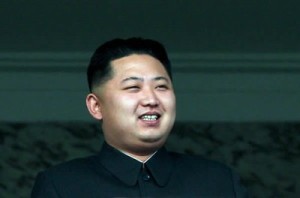Nautilus Institute’s Policy Forum‘s focus is on the timely publication of expert analysis and op-ed style pieces on the foremost of security-related issues to Northeast Asia. Its mission is to facilitate a multilateral flow of information among an international network of policy-makers, analysts, scholars, media, and readers. Policy Forum essays are typically from a wide range of expertise, political orientations, as well as geographic regions and seeks to present readers with opinions and analysis by experts on the issues as well as alternative voices not typically presented or heard. Feedback, comments, responses from Policy Forum readers are highly encouraged.
Phobias, Manias, and Addictions
Nautilus Peace and Security Weekly Report—Contributor’s blog entry for Energy Security.
Frank von Hippel says of the Japanese continuing production of plutonium – in addition to the 35 tons stored around the world – for possible use in a “next-generation” fuel in power reactors, “It’s crazy…There is absolutely no reason to do that.” Perhaps not…
Go to the articleComplex Uncertainties in the Australian Hinge of the Pacific Pivot
Nautilus Peace and Security Weekly Report—Contributor’s blog entry for Austral Peace and Security.
Washington’s Pacific pivot is essentially a matter of the Obama administration drawing a line under the distractions of the Bush-era disasters of Iraq and Afghanistan, and re-focusing strategic planning on the rise of Chinese economic, political and military power…
Go to the articleAustralians Must Adapt to Changing Climate
Nautilus Peace and Security Weekly Report—Contributor’s blog entry for Climate Change Adaptation.
In recent years, climate change has become a key policy and governance challenge that contains potentially severe implications for building peace, creating security, and restoring sustainability….
Go to the articleAnother North Korean Paradox: Divider and Unifier
Nautilus Peace and Security Weekly Report—Contributor’s blog entry for DPRK.
Isolation threats don’t seem to bother North Korea. They are increasingly isolating themselves and yet bringing other countries together in new ways…
Go to the articleCircling the square of nuclear extended deterrence in Northeast Asia
Nautilus Peace and Security Weekly Report—Contributor’s blog entry for DETERRENCE.
Dhanapala argues that a Northeast Asian (NEA) NWFZ is incompatible with nuclear extended deterrence, and rejects a transitional period in which states comply fully with a NWFZ treaty…
Go to the articleThe DPRK: An Isolated Nuclear Armed Pariah State or Potential Co-Operative Economic ‘Tiger’

Colin McAskill asserts that “to continue to link economic engagement with the nuclear issue [in the DPRK] proved to be not only counter-productive but foolhardy. Instead the US must continue the bi-lateral approach, announce publicly that the international banking system is open to the DPRK to use and encourage investors to participate directly in its economic development so they don’t have to do so indirectly or clandestinely through China.”
Colin McAskill’s experience, dealing with as well as for-and-on-behalf-of the DPRK at the highest level, spans more than three decades. He has a deep-seated knowledge, understanding and first-hand experience of the DPRK, its strategies and tactics. He acted as an advisor for a decade during the period of the ‘Bullion Shipments’ into London; arranged training schedules for DPRK delegations in the UK; acted as the mandated representative for the DPRK during the ‘Defaulted Debt’ negotiations with the DPRK’s ‘London Club’ creditors; acted as a mandated representative for the DPRK during the Banco Delta Asia banking crisis in Macau, as well as many other individual assignments. He made his first visit to the DPRK in 1979 and has been a regular visitor to the country over the years.
Go to the articleThe Seoul Nuclear Security Summit: New Thinking in Northeast Asia?

James Goodby and Markku Heiskanen write “that the time for a more active diplomacy in the Korean Peninsula is approaching. And that refers not only to solving the North Korean nuclear issue but also to several legacies dating from World War II and the Korean War. The ultimate goal should be to sign a peace treaty to end formally the Korean War, which concluded only with an armistice agreement in 1953, and to reunify Korea in one way or another. There is some well-founded hope that the year 2012 could open a new era in multilateral efforts to finally construct a new post-Cold War political and security architecture in Northeast Asia.”
James Goodby is former US Ambassador to Finland. He does not speak for the current administration. He is a member of the American Academy of Diplomacy.
Markku Heiskanen is former senior Finnish diplomat, and currently Senior Associate and Program Director of The Asia Institute at the Kyung Hee University in Seoul.
Go to the articleStability: The New Paramount Leader

Roger Cavazos writes, “Zhang Dejiang’s ascension as Party Chief in Chongqing is modeled on a proven formula fo…
Go to the articlePolicy Forum 12-05: The DPRK, the Nuclear Issue and the International Community: What Went Wrong, Why, What can be done in the Future
Colin McAskill acted as an advisor for a decade during the period of the ‘Bullion Shipments’ into London and acted as a mandated representative for the DPRK during the Banco Delta Asia banking crisis in Macau. In this article Colin writes, “The stability established by a smooth transition of power has created a window of opportunity to put the past behind and re-open a new phase of negotiations to put in place a lasting agreement that would launch a nuclear free Korean Peninsula, and usher in a new era of peaceful coexistence. Given KJ-U’s young age, this opportunity may not reoccur for a very long time.
Go to the articlePolicy Forum 12-04: The DPRK: Uncertain but More Hopeful

Shen Dingli, Professor and Executive Dean at Fudan University, writes that the new leadership in Pyongyang has to continue to strengthen Kim Jong-un’s power base, which doesn’t allow it to be either too hostile or receptive to the outside world. It also has to be politically correct and follow Kim Jong-il and Kim Il-sung’s Juche ideology, demonstrating self-reliance. Therefore, to quit the nuclear weapons program is a non-starter. While the DPRK has signaled its intent to return to the Six-Party Talks, this is, in Shen Dingli’s opinion, a tactical move, not a strategic commitment to denuclearization. “All parties involved in the talks should combine their legitimate needs with a realistic approach … Unless other parties would relinquish their nuclear weapons or the benefit of a nuclear umbrella, demanding Pyongyang to rid its nuclear program without prior trust-building is wishful thinking.” In the meantime, in order to manage its shortage of resources, the DPRK has to keep bargaining with others and develop its economy—and this could bode well for engagement and stability.
Go to the article
